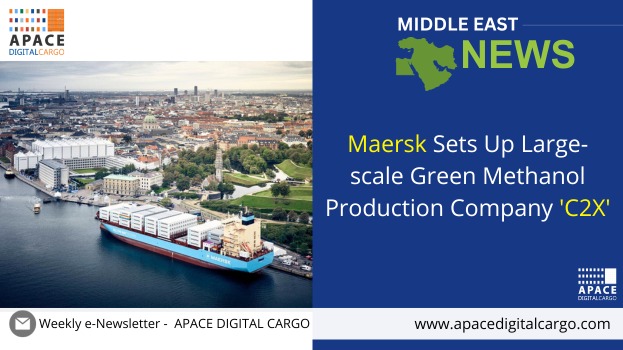
One of the most widely traded chemical products in the world, methanol is a key component of many goods we use on a daily basis, such as glues, textiles, and plastics.
However, the methanol that is utilised today is virtually entirely produced using fossil fuels; the most popular feedstocks are coal and natural gas.
New sources of green methanol produced from e-methanol, based on renewable energy, or bio methanol from agricultural and forestry wastes can immediately replace this.
Green methanol may also be used as fuel to cut fossil emissions in hard-to-abate industries like long-distance transportation thanks to improved engine technology.
A significant increase in the world’s ability to produce non-fossil methanol is necessary to both replace the current usage of fossil methanol with green methanol and to fulfil the rising demand from the use of green methanol as a fuel.
Towards 2050, the annual demand for methanol could triple to some 300 million tonnes, with the majority being green methanol.
C2X is addressing this challenge through investments in large-scale green methanol production facilities and aims to support a variety of customers in the chemicals and shipping sectors who need green methanol to deliver their own green-house gas emission reduction targets.
Robert M. Uggla, CEO of A.P. Moller Holding says, “There is a pressing environmental requirement to scale the production of green methanol. C2X was founded to enable the energy transition in several hard to abate industries, including plastics, glues, textiles, and fuels.”
“I am delighted to see the talented team who have joined C2X, and the strong interest from partners and prospective customers to support the venture’s important purpose and development.”
C2X is majority owned by A.P. Moller Holding with A.P. Moller-Maersk as a 20 percent shareholder, together providing a solid foundation for the company.
A.P. Moller Holding has a track record of incubating new ventures, which support the energy transition, such as Innargi, a leading geothermal based district heating company, established in 2017, and ZeroNorth, a SaaS platform used by more than 3,000 merchant ships to reduce emissions in ocean-based trade, established in 2020.
Both companies are experiencing strong customer traction and have attracted external capital to fast-track their development. A.P. Moller-Maersk has the intention to source green methanol from C2X.
C2X has a strong management team with complementary backgrounds and global experience.
Brian Davis has been appointed CEO of C2X and comes with 35 years of energy industry knowledge at Shell and other companies spanning the entire energy value chain, encompassing oil and gas, chemicals and electricity sectors and a track record of driving growth within complex business environments.
Brian is accompanied by Alastair Maxwell as CFO. Alastair comes with more than 30 years of banking experience from Morgan Stanley and Goldman Sachs, as well as prior CFO and start-up experience.
Brian Davis, CEO of C2X said, “Our focus is on developing our own large-scale projects and selective investments into attractive developments where we can help deliver those projects through access to our capital, expertise and commercialization.”
“We are building on our founders’ longstanding relations with authorities, customers, and suppliers around the world. The green methanol industry is nascent and new technologies are emerging, and we will work hard to drive down our production costs over time.
“However, there is a strong customer pull and regulatory support so we are confident that, together with our partners, we can deliver at scale.”
C2X has a team of 60 people with diverse backgrounds from chemicals, renewables, and construction of mega-projects, shipping and finance.
C2X will develop green methanol from various pathways depending on specifics of the location, and is presently pursuing large-scale green methanol projects near the Suez Canal in Egypt and the port of Huelva in Spain, as well as other opportunities across several geographies.
By 2030, the ambition is to have a production capacity of more than three million tonnes per annum from project opportunities in advantaged locations around the world.




